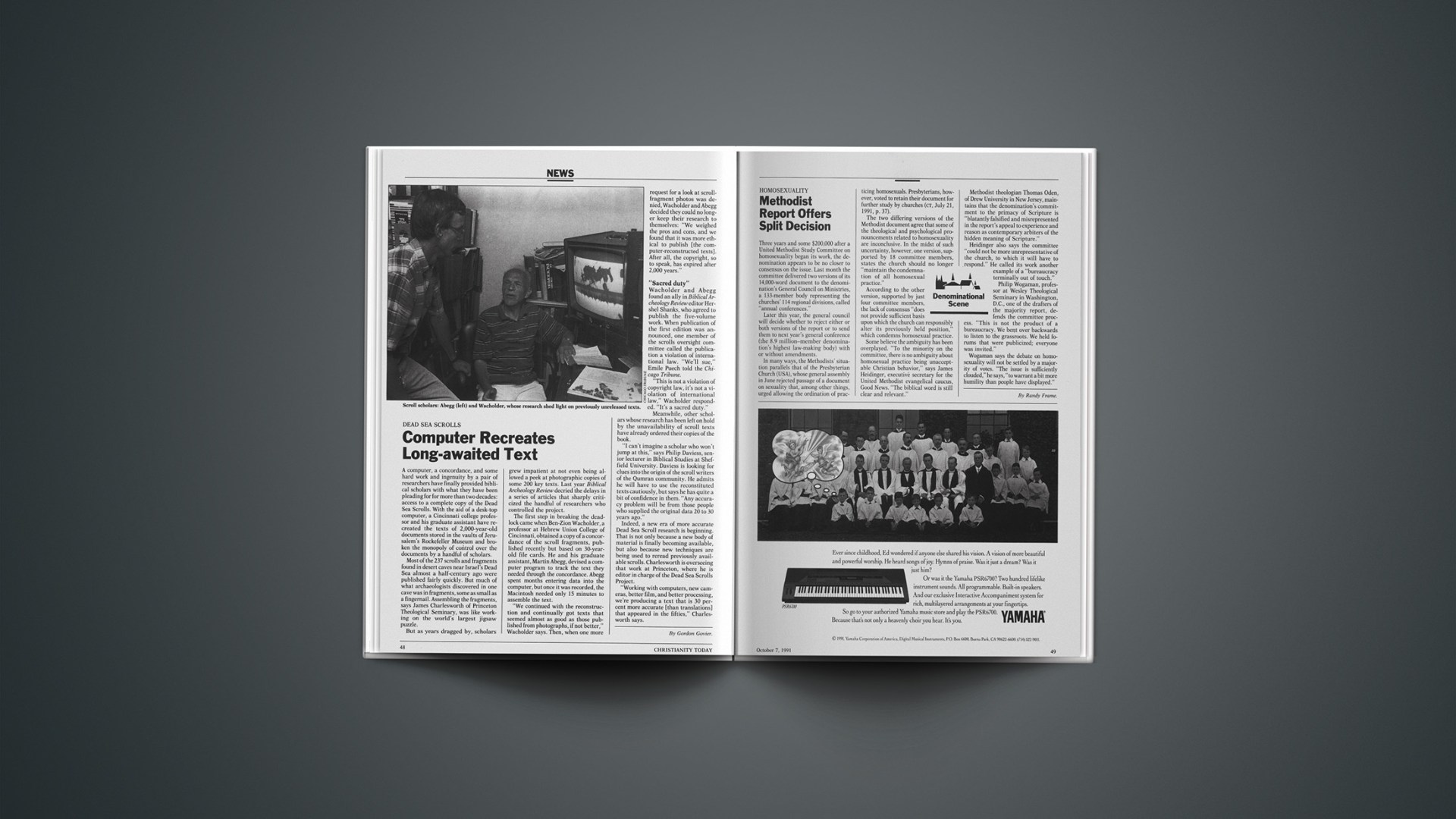Three years and some $200,000 after a United Methodist Study Committee on homosexuality began its work, the denomination appears to be no closer to consensus on the issue. Last month the committee delivered two versions of its 14,000-word document to the denomination’s General Council on Ministries, a 133-member body representing the churches’ 114 regional divisions, called “annual conferences.”
Later this year, the general council will decide whether to reject either or both versions of the report or to send them to next year’s general conference (the 8.9 million-member denomination’s highest law-making body) with or without amendments.
In many ways, the Methodists’ situation parallels that of the Presbyterian Church (USA), whose general assembly in June rejected passage of a document on sexuality that, among other things, urged allowing the ordination of practicing homosexuals. Presbyterians, however, voted to retain their document for further study by churches (CT, July 21, 1991, p. 37).
The two differing versions of the Methodist document agree that some of the theological and psychological pronouncements related to homosexuality are inconclusive. In the midst of such uncertainty, however, one version, supported by 18 committee members, states the church should no longer “maintain the condemnation of all homosexual practice.”
According to the other version, supported by just four committee members, the lack of consensus “does not provide sufficient basis upon which the church can responsibly alter its previously held position,” which condemns homosexual practice.
Some believe the ambiguity has been overplayed. “To the minority on the committee, there is no ambiguity about homosexual practice being unacceptable Christian behavior,” says James Heidinger, executive secretary for the United Methodist evangelical caucus. Good News. “The biblical word is still clear and relevant.”
Methodist theologian Thomas Oden, of Drew University in New Jersey, maintains that the denomination’s commitment to the primacy of Scripture is “blatantly falsified and misrepresented in the report’s appeal to experience and reason as contemporary arbiters of the hidden meaning of Scripture.”
Heidinger also says the committee “could not be more unrepresentative of the church, to which it will have to respond.” He called its work another example of a “bureaucracy terminally out of touch.” Philip Wogaman, professor at Wesley Theological Seminary in Washington, D.C., one of the drafters of the majority report, defends the committee process. “This is not the product of a bureaucracy. We bent over backwards to listen to the grassroots. We held forums that were publicized; everyone was invited.”
Wogaman says the debate on homosexuality will not be settled by a majority of votes. “The issue is sufficiently clouded,” he says, “to warrant a bit more humility than people have displayed.”
By Randy Frame.










